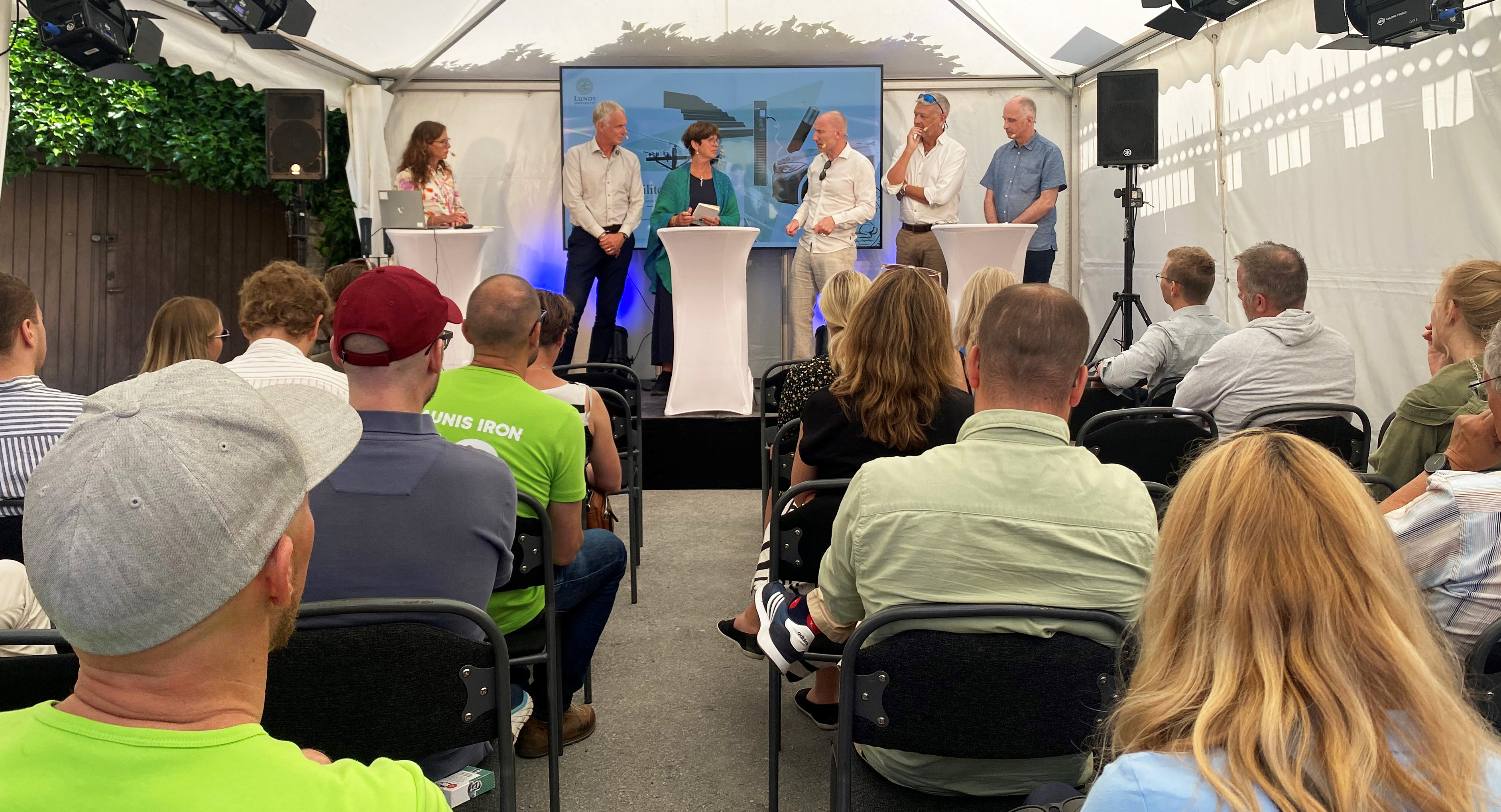Hello Olof Samuelsson, what is happening in the Energy Transition profile area?
In this interview, we talk to professor and coordinator Olof Samuelsson about the Energy Transition profile area. We discuss the exciting activities currently underway and what we can expect in the autumn regarding research and education.
Cecilia Schubert – Published 27 May 2024

Tell us, what is a profile area? Can you briefly describe it for those who don't know?
– A profile area acts as an umbrella for various parts of a research field, making them stronger and more capable of addressing societal challenges. In our case, the Energy Transition profile area includes research in electrification, energy storage, sustainable fuels, and thermal energy, focusing on achieving independence from fossil fuels. Organizing work this way facilitates collaboration between research groups and makes it easier for partners to find the right contacts. It also enhances the visibility and accessibility of our energy research.
You are the coordinator of the Energy Transition profile area at LTH together with Sara Blomberg. Can you tell us about your role?
– As coordinator, my role is to unify the various parts of the profile area, transforming them from separate units into a cohesive group with a shared purpose. We have created a platform at LTH where researchers can communicate, stay updated on each other’s work, and collaborate towards common goals. Our ambition is for researchers to recognise collaboration opportunities, thinking, "We can work together on this," or "I have expertise in this area and can contribute." It's both fun and challenging due to the broad scope, but also rewarding because the global community is working towards the same goal.
What major events or activities have taken place in the profile area since you started, or at least in the last year?
– Two events come directly to mind. In January, we had a meeting in Mossbylund that significantly strengthened our team spirit. All profile area members were invited, allowing us to get to know each other and understand the bigger picture of our work. Researchers often work in isolation, but this event helped us connect and appreciate each other's efforts.
– The other significant event was the COMPEL initiative. Alongside Chalmers and Uppsala University, we received substantial government funding focused on electrification and batteries. Our existing network and the trust we had built with LTH’s management played a crucial role in being chosen to manage this initiative. We have spent considerable time during the autumn and spring setting this up.
– Additionally, we have organized a series of lunchtime seminars for researchers in the field, aiming to foster collaboration and knowledge sharing. In May, we hosted the Nanoscience and Semiconductor Technology profile area, which presented their work and potential collaboration opportunities with us.
Read about the joint lunch seminar here
What can you tell us about your activities during last year's Almedalen?
– Almedalen 2023 was another highlight. LU and LTH have participated for many years, but last year four of the faculty’s profile areas, including us, were represented, marking a significant kickoff for our area. It was valuable to be visible and engage with the diverse activities happening there.
Watch the electromobility seminar in Almedalen here
Looking ahead, what can we expect this autumn? Will there be any major activities or events to look forward to?
– This autumn, we will focus on shaping and integrating COMPEL within the profile area. This includes recruiting PhD students and launching experimental initiatives. We hope to establish a laboratory in Ljungbyhed for testing the fire properties of batteries. The government’s investment in COMPEL also includes expanding education to train more engineers and hiring additional faculty for teaching and research in electrification and battery technology. We will continue to develop and redesign courses to align with this mission.
– We have three focus areas within the profile: electrification, thermal processes, and energy storage and sector coupling. These areas will continue their work, and we will highlight their progress in various ways. The lunchtime seminars will also continue as they have been well-attended. Beyond that, I don't have more details, but we are planning extensively!
